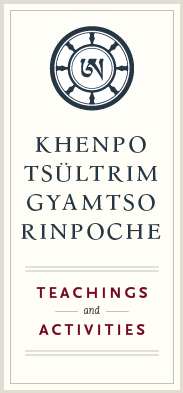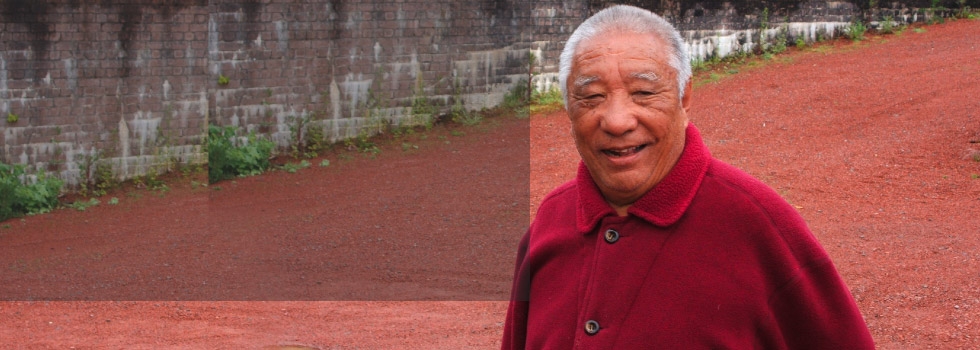You are here
Khenpo Tsultrim Gyamtso Rinpoche emphasizes the union of practice and study. He engages students through vast explanation, debate, and composition on the basis of traditional texts and his experience of meditation. His direct, experiential guidance is transmitted through song, commentaries and teachings. Traditional texts are translated by his students and expanded upon through his unique realization.
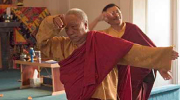 |
Songs
Khenpo Rinpoche has always placed great value on the songs of realization of Milarepa, such as those found in his One Hundred Thousand Songs, as well as those of other great teachers and practitioners. He has composed many vajra songs elucidating their intention. He has also independently composed innumerable songs that communicate the oral instructions. more » |
 |
Selected Teachings
Khenpo Rinpoche's profound teaching style can be described as experiential transmissions. When Rinpoche was asked to tell his life story, he responded by composing a song. This short song composed at the time he was “flying through the expansive sky” functions as Rinpoche’s autobiography. However, it is not an autobiography in which he tells us, “I went here and there, and I did this and that,” because those things are relatively unimportant. He writes, "It is time to focus on the mind that is occurring in this very moment and understand that it, itself, is without any bass or root." more » |
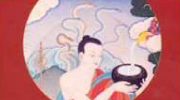 |
Books and Transcripts
In 1983, near the Jarung Khashor stupa in Boudhanath, Khenpo Rinpoche began teaching international students focusing on the Tibetan language and the translation of traditional texts. In 1986, he founded the Marpa Institute for Translation and the Marpa Translation Committee. Since then hundreds of Tibetan translations have been made in English, Spanish, Danish, German and French. more » |
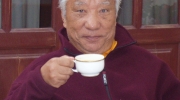 |
Articles and Interviews
Where was Khenpo Rinpoche when he composed a song? How did he go about composing a song? Explore the articles and find fascinating accounts of Rinpoche's approach. For instance, at the sacred place of Chakrasamvara called “Arbuta” in Rajasthan, India, Khenpo Rinpoche simultaneously composed two songs of realization, alternately singing one verse from one song and then one from the other, until both were completed. more » |
 |
Quote of the Week
In 2010, students of Khenpo Rinpoche began sending a weekly e-mail of his quotes. Here you may read the quotes at your leisure and contemplate their meaning as you would a doha. Currently the focus is Paltrul Rinpoche's verses with Khenpo Rinpoche's commentary. Earlier in the year quotes were from Khenpo Rinpoche's book The Progressive Stages. more » |
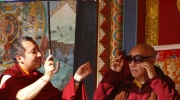 |
Digital Library
A rich and varied repository of digitized audio and video recordings of Rinpoche's enlightened teaching activity is well underway. more » |
